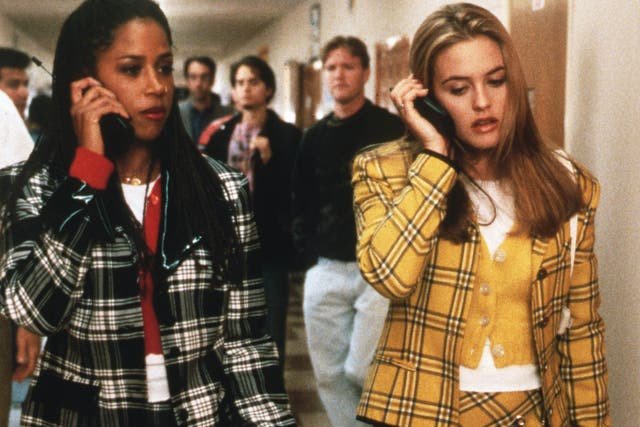Get in your inbox the latest News and Offers from
How young people killed the phone call
- Blog Detail
- Home
How young people killed the phone call
- 09 May, 2024
As a survey reveals that a quarter of people aged between 18 and 34 would never dare answer the phone, Olivia Petter asks if we?re truly better off with text-based communication ? or whether we?re missing out on real intimacy

Once upon a time, the sound of your phone ringing would elicit excitement. Now though? Pure panic. At least if you?re young. According to a survey of 2,000 people carried out by the price comparison site Uswitch, a quarter of people aged 18 to 34 never actually answer when they?re called. Respondents explained that, after hearing the phone ring, they?d usually ignore it. Others said they?d google the number or text the person back rather than calling them.
Nearly 70 per cent of those surveyed said they?d prefer a text to a phone call, while 37 per cent favoured voice notes. Meanwhile, more than half confessed that an unexpected call would lead them to believe they were about to receive some bad news.
It?s something I?ve witnessed at first hand many times. People my age (29) are simply terrified of the phone. We might as well call it something else entirely given how rarely it?s used for telecommunication of any kind. Just last week, I texted a friend: ?Can I call you?? only because it felt rude to simply do it unexpectedly. He replied immediately: ?That is the most terrifying message you could ever send.?
We did not have that phone call ? the prospect was simply too daunting for him. So we sent each other WhatsApp messages and voice notes instead. Just like when a friend rang me a few days later and, instead of answering, I watched it until it stopped, only to message the friend later and apologise for missing her call. I?m not sure why; I was feeling lonely and could have done with a chat. But the anxiety of talking on the phone at that particular moment trumped this feeling. What?s wrong with us?
?Whenever I get a phone call from someone I know, my heart skips a beat,? says Ali Korsan, 24. ?I think this is the norm for Gen-Z, and probably other generations that have grown up with texting. It?s the beauty of being connected all the time but for when it?s convenient to reply. A phone call is usually for something that requires my immediate attention.?
It?s not just younger people, either. ?I would never call a person randomly out of the blue, just like I wouldn?t knock on their front door unannounced ? it?s just not respectful of their personal space or time,? says Sharon Olivero-Chapman, 47. ?If anyone wants to talk to me regarding business, I would book a day and time to have the conversation. This is simply etiquette. As for friends and family, a quick text to ask if they?re free to talk is absolutely necessary, too. It?s a real bugbear of mine when people bombard me with calls unannounced.?
Much of this hesitancy is the result of our increasingly online-first culture. It may have normalised some ways of communication but also rendered others archaic and strange. ?It?s important to recognise that the shift away from phone conversations is not solely a result of preference but also reflects broader societal changes and technological advancements,? explains Barbara Santini, a psychologist and relationship adviser. ?With the rise of digital communication platforms and social media, individuals have unprecedented access to instant messaging, video calls, and social networking sites. These mediums offer convenience, accessibility, and a sense of interconnectedness, making them increasingly appealing alternatives to traditional phone calls?
It?s true: texting can be more efficient than speaking over the phone. You can consider what it is you want to say, and ensure you?re articulating it in the best possible way. It can be particularly helpful in conflict resolution, giving you enough time and space to express yourself to someone who has hurt or upset you. That said, all this comes with a heady dose of angst, too. For some, a paragraph of text may be just as spine-chilling as a phone call, indicating that something is wrong.
It?s even worse on instant messaging platforms, such as WhatsApp, which are more spontaneous and often leave you with a wave of anxiety given the overwhelming access you have to people?s communication styles. Read receipts, ?last seen? notifications and similar features provide us with a deluge of information we simply don?t need and would be spared when we?re just talking over the phone.
?Texting is unemotional and can get misinterpreted,? says Sonja Sha-Williams, Ayurvedic practitioner and author. ?It stops us from interacting with how someone says something and reading the meaning behind it. The voice is so important to hear and to use in conversation because the tone and intonation identify who the person is and it elicits a feeling of familiarity. We understand what they are saying and the true meaning behind it because of how they say it.?
Perhaps our phone call anxiety is misplaced. Think about how many times you?ve misunderstood a message someone has sent you. I?ll bet nine times out of 10 that message could?ve been more easily communicated over the phone. And, yes, it might be more nerve-wracking to do that given you have to, erm, actually speak to people spontaneously but it would allow you to express yourself far more clearly and cogently and without room for misinterpretation.
?While digital platforms facilitate rapid exchanges, they often lack the depth and richness of face-to-face or voice-based interactions,? adds Santini. ?Phone conversations allow for nuances in tone, intonation and pacing that can convey emotional cues and foster empathy. In contrast, text-based communication may lead to misinterpretations or misunderstandings due to the absence of these contextual cues."

Thing of the past: Dionne (Stacey Dash) and Cher (Alicia Silverstone) talk on their phones in the seminal 1995 teen movie ?Clueless? (Shutterstock)
This has a deeper impact than you might think. By having conversations that are only ever surface-level, or through avoiding real-time, over-the-phone communications, you are inevitably going to impact your relationships. ?Avoiding phone conversations can erode the quality of relationships over time and contribute to feelings of social isolation and disconnection,? says Santini. This might sound odd ? surely consistent texting is fostering connection, rather than inhibiting it? Well, it?s not that simple.
One 2020 study found that online communication can actually have negative effects, leading to ?over-exposure to information?, which can ?overload? people. In other words, the more you text someone, the more you may end up pushing them away from you. Of course, introverts might also find phone conversations especially hard. ?Text-based communication provides a sense of control and distance, allowing individuals to carefully compose their thoughts and responses without the pressure of immediate interaction,? Santini says. ?While this may alleviate anxiety in the short term, it can also impede the development of essential communication skills, such as active listening, empathy, and assertiveness.?
It?s this development that is essential to allowing us to feel connected with one another. How, then, can we revive the humble phone call from its grave, and better our communication skills and feel a little less isolated in the process? Is it simply a case of grinning and bearing it whenever the phone rings, or is there something deeper at play?
?It could be helpful to begin with calling your close friends and family to practise, which can help build confidence and get you more accustomed to making phone calls,? suggests Noël Wolf, a linguistic expert at the language learning platform Babbel.
Ahead of a planned call, you might want to try preparing in advance by taking down some notes. ?This can help you feel more in control and alleviate anxiety,? adds Wolf. ?At the same time, try not to overthink your responses and instead focus on what the other person is saying; active listening can help to keep you engaged in the conversation.?
Still not convinced? The next time you feel a little lonely, challenge yourself to make a call instead of sending a text. The other person might be alarmed at first but, after a while, you might find yourself having the best conversation you?ve had with them in ages. Who knows? Maybe they were feeling lonely, too....


